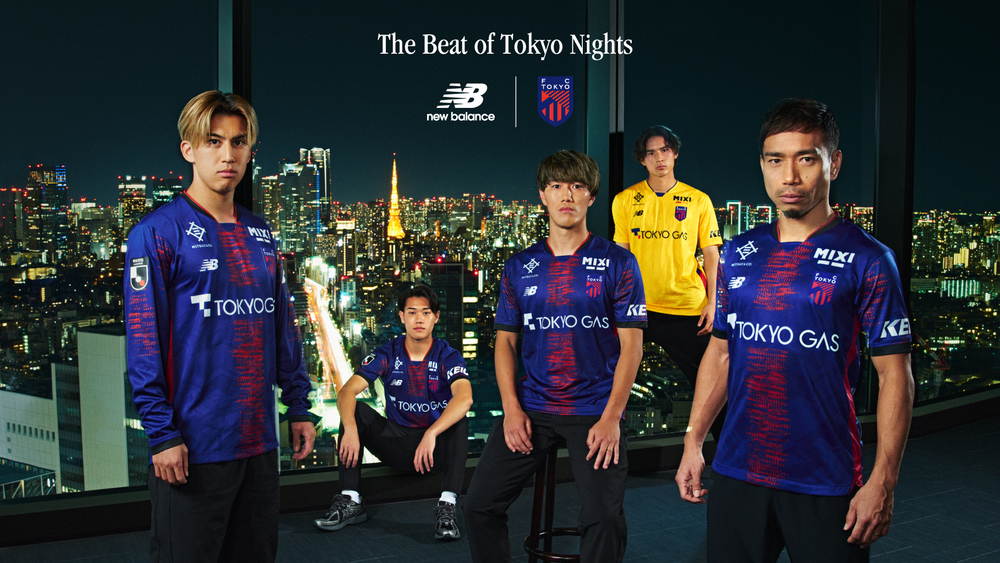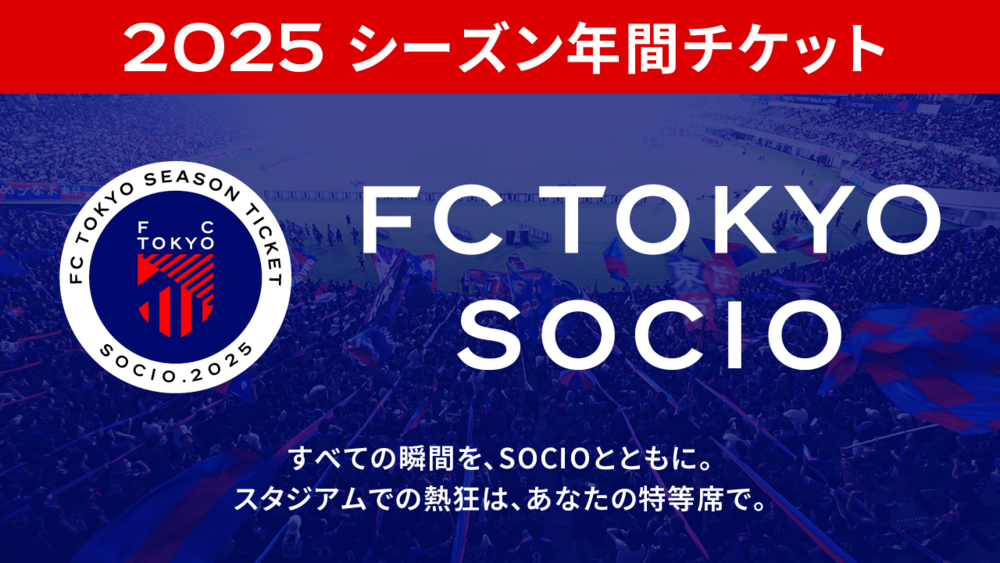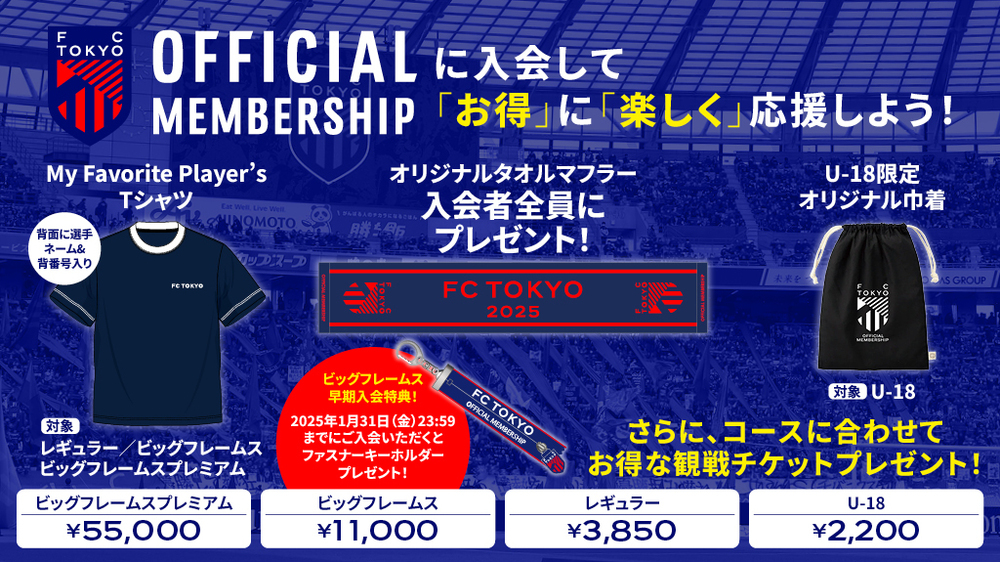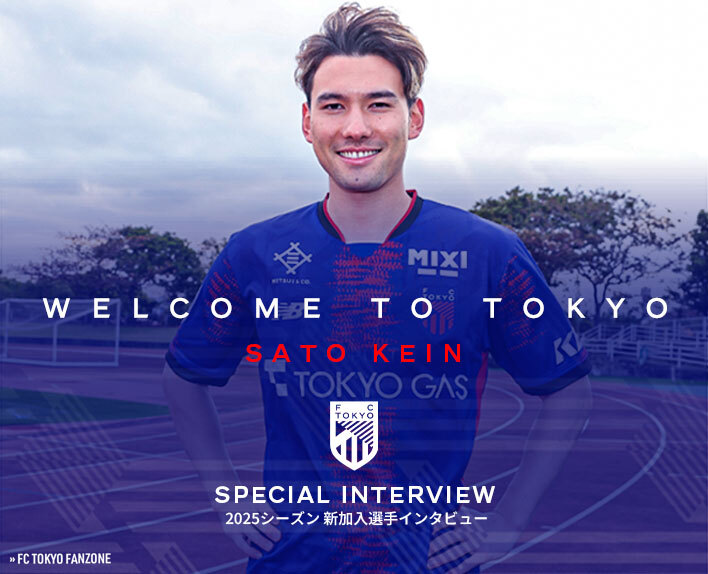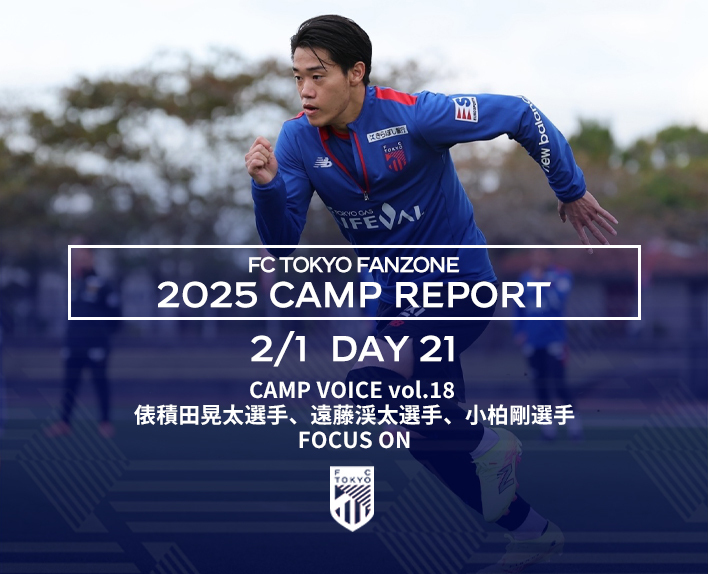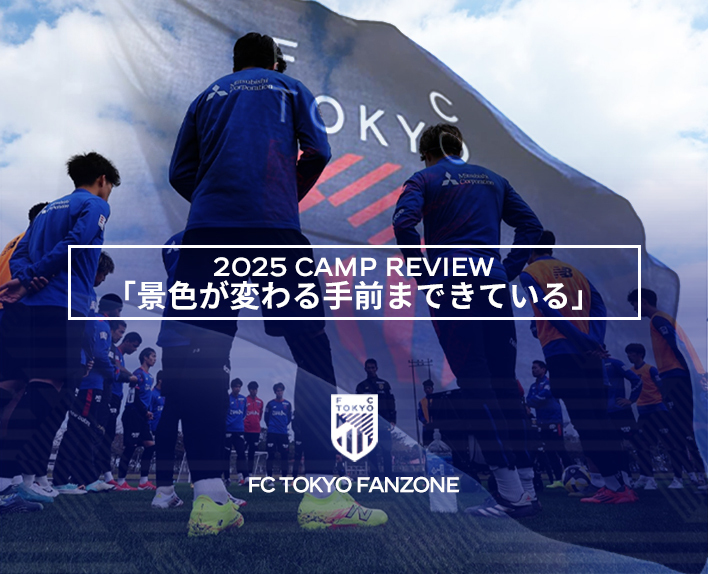A young attacker returning from Germany has joined the blue-red army currently training in Okinawa. Without waiting to graduate from Meiji University, he moved to Europe and joined SV Werder Bremen. He became a regular in the U-23 Japan national team for the Paris Olympic generation and participated in last summer's main tournament. However, it is also true that he did not play for the first team in Bremen and spent frustrating days. To aim for the top once again and to prove his abilities, he chose to restart in Tokyo, and I heard about his determination.
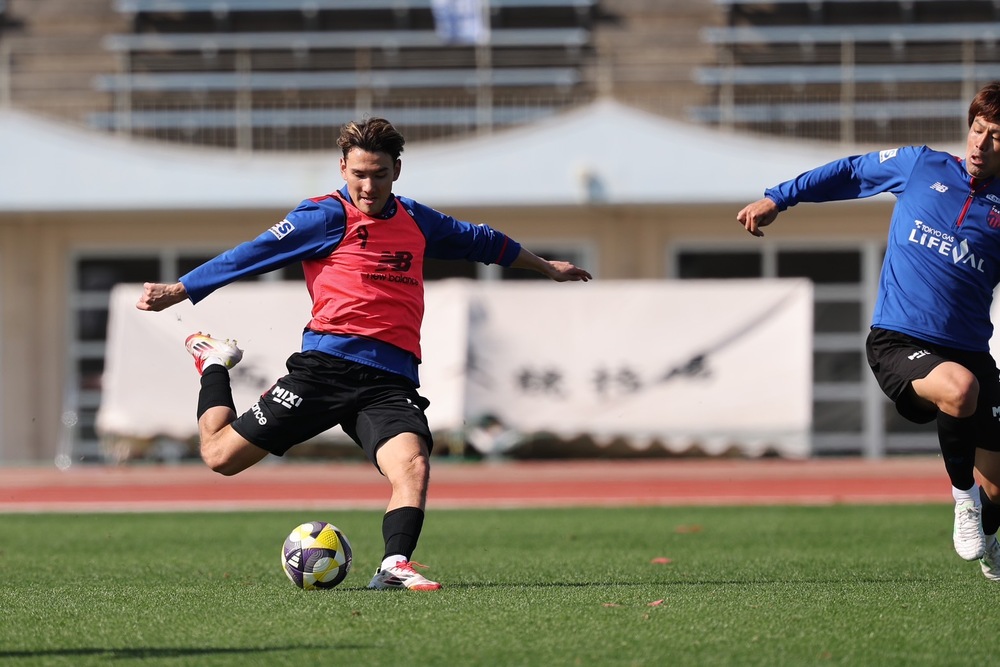
Q: I returned from Germany and joined the Okinawa camp. How is your current condition?
A, I arrived in Okinawa late at night, and I still have a bit of jet lag. However, I think it's gradually getting better, and I believe I'm managing well while consulting with the physical coach. Of course, I intend to compete and start in the lineup from the opening match.
Q: Please tell us about this transfer. First, how did you make the decision to return to Japan?
A, there were six months left on my contract in Germany. However, since I had not played for the first team, I thought it was best to gain more experience and increase my value. During that time, I received an offer from Tokyo. It is a wonderful club and also a local club, so I made the decision to return home immediately.
Q: Do you feel the expectations from the clubs that have continued to send you offers since your time at Meiji University?
A, that's right. The reason I have come this far is because of the thoughts and support of the people who have been involved with me, and I believe that without those people, I wouldn't be who I am today. I want to keep a strong sense of gratitude and work hard every day to meet their expectations.
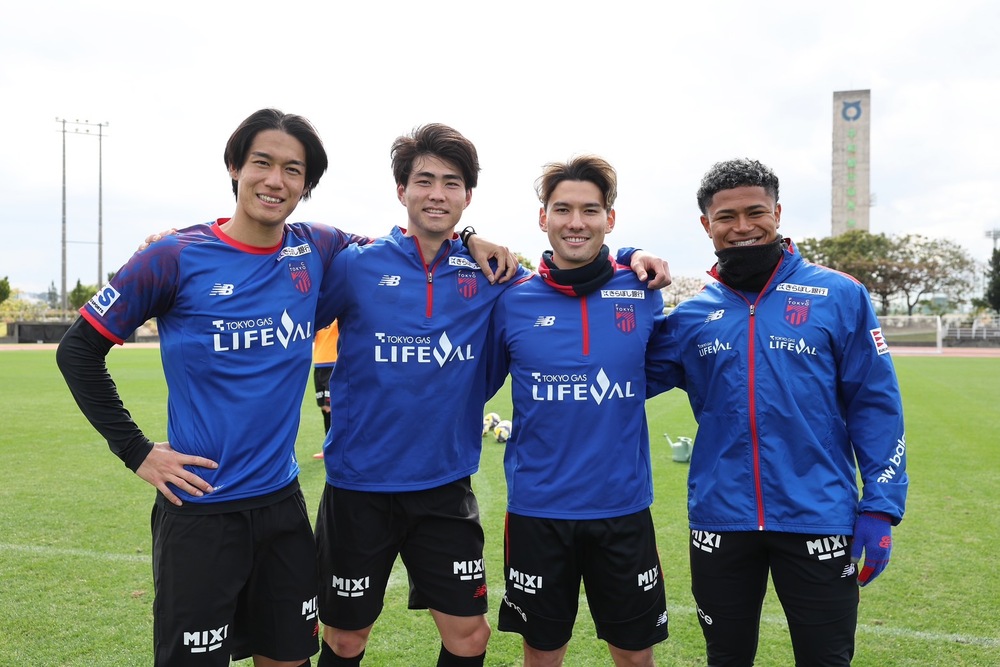
Q: What was the deciding factor for your transfer to Tokyo?
A, since it was a club I had been watching since I was little, I thought it would be good to return to Tokyo if I were to come back to the J-League. I had many acquaintances and seniors, and I thought it was a club where it would be easy to play, so I made my decision considering those environmental aspects as well.
Q, Teppei OKA was my teammate during elementary school and university. We ended up playing on the professional stage wearing the same uniform.
A, TETSU (player Oka) and I have a really long relationship. We played together when we were in elementary school, and then became teammates at Meiji University, so this is our third reunion. I know him very well, and one of the reasons I chose Tokyo was because of his presence. There are many childhood friends, seniors, peers, and juniors in this team, so I want to achieve the club's first league championship with this group.
Q: There are many people from the same generation, right?
A, I think there are really many players who get along well. Although Okada is the one I've known the longest, my peers Seiji KIMURA and Kashif BANGNAGANDE also have a good relationship, and Taishi Brandon NOZAWA was a teammate in the U-23 Japan national team for the Paris Olympics. There are also seniors and juniors from Meiji University, so I know a lot of people (laughs). When I joined, it didn't feel like I had just transferred; it felt very homey and created a really easy environment, which I am grateful for.
Q: Kizuna Kominato, who has been confirmed to join, has also competed in university soccer.
Player A, Kominato is also the type to come in strong, so we are having a friendly conversation.
Q: Given that relationship, don't you think you've become too familiar from the very first day of joining?
A, that's my strength (laughs). I have a friendly personality, so I want to bring out my strengths off the pitch and create a good atmosphere for the team. To be honest, I intended to join the team's practice from the first day of joining, and I wanted to start as soon as possible, but I couldn't be included in the full team practice (wry smile).
Q: You seemed eager to kick the ball from the first day, didn't you?
A. The camp had already started, so I wanted to join in quickly and create a sense of unity.
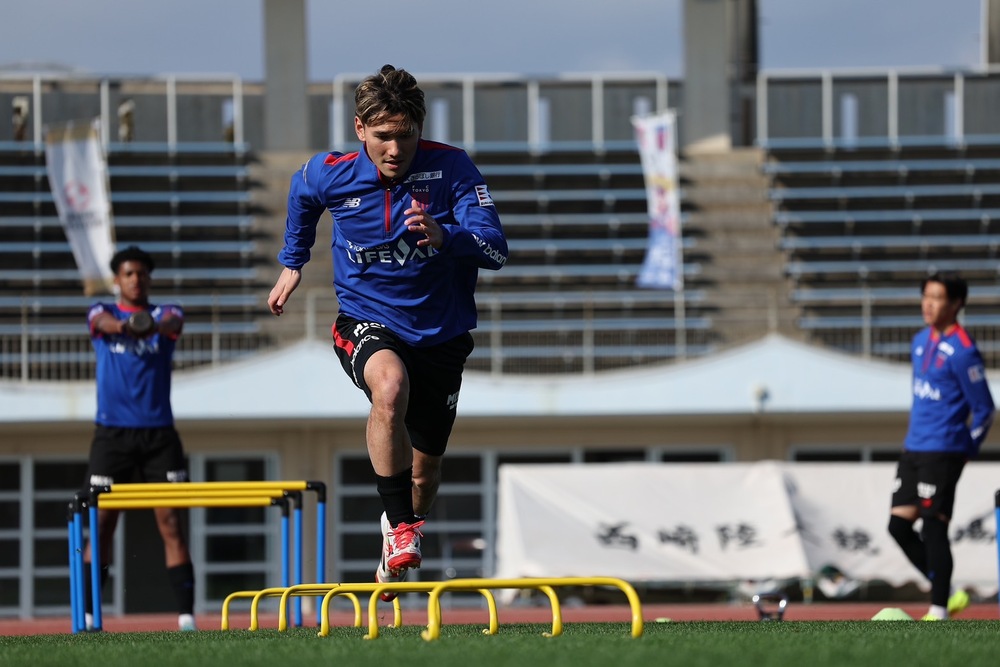
Q: I think you had various experiences during your year and a half living in Germany. How do you reflect on that?
A, the challenge in Germany was personally tough as I was playing in a difficult environment, so I think there were long hard times. I was surrounded by players who were taller than me, physically stronger, and faster. I believe my physicality and my unique traits have grown through competing with such players. Additionally, I think my mindset and skills have also developed, so I want to contribute positively to this team.
Q: Have you ever faced any obstacles?
A, I have faced obstacles in the past, but I believe that overcoming them has shaped who I am today. I want to use that struggle as fuel to thrive in Tokyo.
Q: What aspects did you find challenging in Germany?
A, it may be something that every player who has challenged themselves overseas feels, but the difference in environment was significant. I personally was not able to join the team as an immediate asset, so I always needed to make an impression. However, there were periods when I had to leave the team for activities with the U-23 Japan national team of the Paris Olympic generation, and there weren't many opportunities to make an impression within the team. This may sound like an excuse, but I believe I couldn't fully demonstrate my abilities. Additionally, there were players with stronger physicality and faster feet than me, and I couldn't fully showcase my individuality. That is simply a lack of ability. On the other hand, there were aspects where I was able to compete in the Bundesliga, so I don't think everything was negative. I want to show what I learned in Germany in Tokyo.
Q: After concluding my challenge in Germany, I have transferred to Tokyo. What are your thoughts on your future career path?
Of course, since I came to this club, I believe that winning the J1 League is the biggest goal both personally and for the club, so I will do my best towards that. As an attacking player, I aim to score double digits and also want to make sure I provide assists. I will give everything I can for the team to achieve the league championship.
Q: What specific initiatives do you want to implement in Tokyo?
A. I think it is important to pursue the standards I feel without lowering them. There are many players in the team who have fought in the world like Yuto NAGATOMO. I hope to absorb a lot from those players and make it my own nourishment.
Q: Did you find any common values or ways of thinking with player Nagatomo?
A. I have had the opportunity to talk with Yuto in the past and have received advice from him. I listened to him when I participated in the training camp as a training partner for the Japan national team, and I had communicated with Kento HASHIMOTO as he was competing on the world stage. Now that we have become teammates, I would like to have deeper conversations with him.
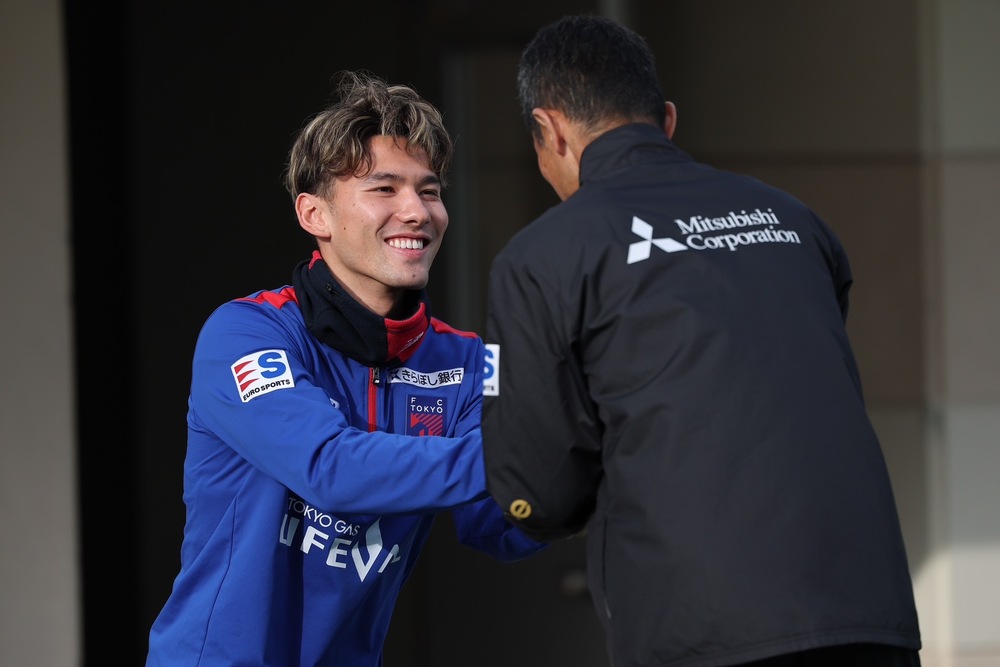
Q: How do you feel about Coach Rikizo MATSUHASHI's soccer?
I think the coach analyzes the players thoroughly and builds the team accordingly. Although I have just joined the practice, I believe it is a team style that is easy to envision from watching the practice outside. I want to combine my playing style with that and make something good out of it. The coach also communicates with the players, so I think it is easy to share ideas.
Q: Just like with the Paris Olympic generation representative team, you give the impression of being a player who becomes unstoppable once you start to perform well.
A, I think that is also something that is expected of me, so I want to make sure I don't disappoint those expectations. Of course, I want to do it in my own way without being too stiff. I believe that once we score a goal, we can really push forward.
Q: Please tell us the reason you chose the number 16.
A, there is no deep meaning, but the number I have worn from the ones you suggested is 16. It holds significance for me as it was the number I wore when I first started in the starting lineup and scored a goal in my second year of university. I would like to score 16 goals in the league, inspired by my jersey number.
Q: You were already shaking the goal net during training.
A, in the end, there is no victory without scoring a goal, and I want to be conscious of that from practice. I want to show it first in terms of scoring.
Q: The Meiji Yasuda J1 League, which I will be challenging for the first time, will finally kick off in two weeks.
I want to compete strongly and be in the starting lineup from the opening match. I aim to score the most goals in the team and fight for our first league championship. I am really excited about this challenge.
Text by Kohei Baba (Freelance Writer)

